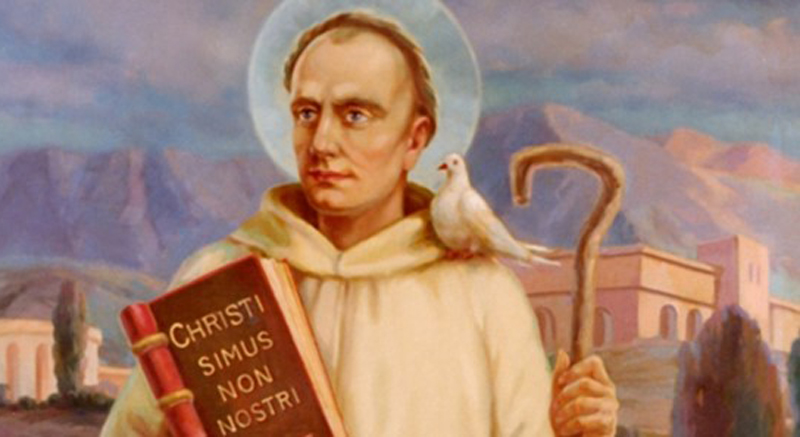(c. 843-615)
St. Columban was from Leinster, Ireland, and went on to become an abbot, a writer, speaker and one of the greatest missionaries of the Celtic Church initiating a revival of spirituality in Europe. He went to the great monastic seat of learning at Bangor in Northern Ireland, where he was educated by St. Comgall in the austere Irish monasticism of the time.
Later, with Comgall’s permission, Columban left with 12 companions to do missionary work in Gaul. When the fame of the preaching and holy life of these monks reached Guntramnus, king of Burgundy, he invited them to his kingdom. There Columban built the famous monastery of Luxuil, which became the parent monastery of over a hundred others, which in their turn did great service to religion, industry, and culture in Europe, during the Dark Ages.
The rule introduced by Columban was so austere that he eventually incurred the wrath of the lax local clergy and the Frankish bishops. They summoned him before a synod to defend certain of his Celtic customs. Declining to go. he wrote two letters to the Holy See, but the letters never reached their destination.
By his censure of Theodoric II of Burgundy, he lost royal favor and was ordered in 610 to be deported to Ireland with his Irish brethren. But due to bad weather the ship ran aground, enabling the monks to escape to the court of Theodobert II of Austria at Metz.
Well received, they preached to the pagans till Theodoric of Burgundy gained control over this territory. Columban now crossed the Alps and reached Milan where he was received kindly by Agiluiph, king of the Lombards. Though now 70, Columban personally helped to build a monastery there. When Theodoric’s successor recalled Columban to France, he declined to go and instead, sought the king’s protection and favor for the monastery of Luxeuil. Columban died a year later on Nov. 23, 615.
The writings of St Columban, whose body lies in a crypt of the Church of St Columbanus at Bobbio, form part of the great tradition of Irish Latin literature and are known to have had an abiding impact on the culture of the middle ages.
Adapted by A.J. Valentini
